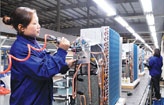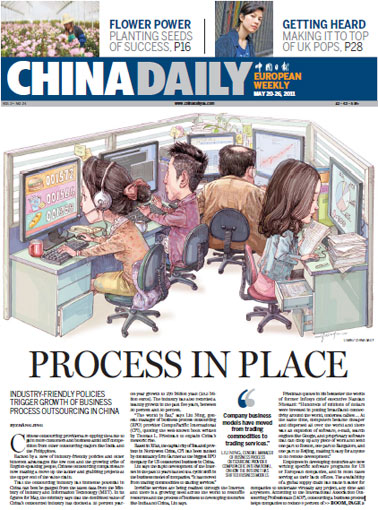Health
Car ownership driving up health problems
Updated: 2011-05-25 07:50
By Liu Zhihua (China Daily)
Chen Zeng'an has faced a dilemma since he bought a car in early 2008.
The Beijing IT company manager says driving from his home in Tongzhou district to his office in western Haidian district cuts his commute to an hour and a half - half the time it takes on public transport.
But the 28-year-old says his health has been suffering for it.
"Taking the bus and subway was my only exercise," Chen says. "But the more I drive, the less I walk. And I'm quickly gaining weight."
An even greater problem, he says, is that he has to concentrate while driving.
"Holding the same posture for so long causes numbness and pain in my spine and muscles," he says.
The Ministry of Public Security's traffic management bureau says the country now has 144 million motorists, and an average of 22 million have been joining their ranks every year.
But car ownership contributes to health risks, says a recent survey by the Ciming Checkup Group, the Chinese Medical Doctor Association and several other medical associations.
Aside from injuries incurred in traffic accidents, the risks include long-term harmful effects on both the body and psychology, the survey finds.
Interviews, questionnaires and follow-up reports about the health of 355,020 drivers nationwide show the negative effects of sitting behind the wheel.
About 25 percent of respondents report cervical spondylosis - a degenerative osteoarthritis of the spinal joints.
About 17 percent suffer digestive problems, while 12.2 percent face respiratory issues and 10.2 percent develop reproductive problems.
Chinese drivers also suffer psychological discomfort, the Chinese survey finds.
Many motorists say traffic jams create anxiety and anger.
Pressure is added by the troubles and expense of maintaining and fueling the vehicles, especially since gas prices have been surging, the study says.
The survey finds psychological pressure is heaviest among drivers in first-tier cities, such as Beijing and Shanghai, and Guangdong province's capital Guangzhou and Shenzhen.
"We found many drivers in China are suffering from road rage," says Yu Shibei, head of Ciming Checkup Group's experts on public health statistics and diseases prevention.
Yu says small lifestyle tweaks can help drivers stay physically and emotionally fit. These include not using elevators unless necessary and walking as much as possible at the office.
"Drivers should exercise regularly, eat balanced diets and avoid moodiness," Yu says.
"Stop the car one bus station away from your destination and walk, and you will feel good."
China Daily
E-paper

Thawing out
After a deep freeze in sales during the recession, China’s air conditioner makers are bouncing back
Cool Iron lady
Of good and evil
Build on security initiatives
Specials

Memory lanes
Shanghai’s historic ALLEYS not just unique architecture but a way of life

Great expectations
Hong Kong-born singer songwriter rises to the top of the UK pops.

A diplomat of character
Belgian envoy draws on personal fascination to help build China ties.
